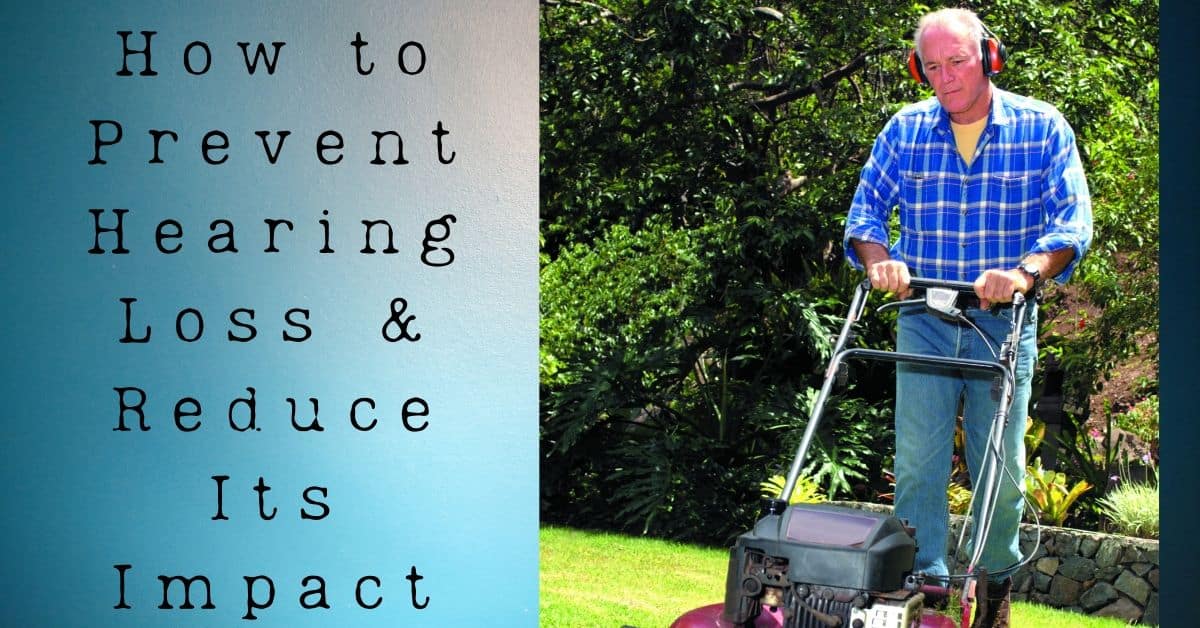
Hearing loss affects about 48 million Americans. It can be the result of age, illness, noise exposure, medicine, and the natural aging process. While some causes of hearing loss are unpreventable, others, such as noise-induced hearing loss, are totally within your power to control. Let’s look at how you can avoid damaging your hearing with noise.
How to prevent hearing loss
No matter how healthy you are, if you don’t protect your hearing in noisy environments, you still run the risk of hearing damage. Whatever your age or hearing condition, shielding your ears when you’re exposed to loud noises is always a smart idea.
Here are some best practices for doing so.
- Practice the safe use of earbuds: Follow the 60/60 rule: don’t listen to music at more than 60% of the maximum volume. Several apps have settings that you can use to restrict the volume automatically. Then, for every 60 minutes of listening, take a break.
- Avoid noise: The only way to prevent loss of hearing caused by noise is to stay away from excessive noise as much as possible. Typically speaking, a sound is usually loud enough to harm you if:
- You have to raise your voice to talk to someone.
- You can’t hear what people nearby are saying.
- It’s painful to be in the room.
- You have ringing in your ears afterward.
Noise levels are expressed in decibels (dB): the higher the amount, the louder the noise. Any sound above 85dB can be dangerous, particularly if you have exposed yourself to it for longer than an hour
Free sound level meters are available on your smartphones to track the sound all around you. These usually show noise levels in decibels, and may even tell you when you are in danger of developing hearing loss.
Use ear protection: Avoiding loud practices is the safest way to protect your ears from the noise. But when you can’t avoid loud noise, use protection against hearing. Hearing protection devices lower the sound level going into your ear to a safe level, but don’t completely block out the sound.
Get your hearing regularly tested: Much like a vision test, an annual hearing test helps you to monitor your hearing improvements and make adjustments if you need to. Your hearing specialist will compare every audiogram you have to the previous one, helping them to see how your hearing has changed and alert them to possible dangers like earwax buildup and hearing loss caused by noise. Identifying a minor hearing impairment can potentially be a positive thing because it helps you to stop a severe hearing loss in its tracks.
How to minimize the effects of hearing loss
The tips above are all well and good, but what if you have already noticed changes in your hearing?
It can be very disconcerting to find that your hearing is declining. Hearing loss occurs very slowly for most people, and the initial steps sometimes go unnoticed. It is often the case that others start noticing that a person is not listening as well as they used to, yet often feel awkward discussing it. However, left untreated hearing loss is related among other conditions to depression, dementia, and a loss of independence.
Speaking ahead of last year’s discussion at the European Parliament, officials proposed hearing aids as the solution to mitigating hearing loss impacts.
“Good hearing treatment and the use of hearing aids not only contribute to improved hearing and comprehension but also allow people to remain independent and enjoy life to the full,” – Mark Laurens, President of the European Hearing Aid Professionals Association (AEA).
At the same discussion were academics who discussed their findings supporting this view. Here’s how hearing aids could reduce the impact of hearing loss in specific ways:
- Decreased dependency: Professor Hélène Amieva, a neuropsychologist, recently published a study based on data from 3,777 people aged 65 and older, who were tracked over 25 years. She concluded that people with chronic hearing loss in their daily lives are at a higher risk of being dependent on others. The study then demonstrated that people with hearing loss who use hearing aids have the same chance of remaining independent as people with normal hearing.
- Quality of life restored: Bridget Shield presented results from her study entitled “Hearing Loss-Numbers and Costs” at the same discussion. The survey found that the use of hearing aids and other hearing devices enhanced physical safety and increased quality of life for the user. It also showed that those with an untreated hearing loss are at higher risk of social alienation, depression, cognitive impairment, and dementia. In comparison, those who manage their hearing loss are not at higher risk than those without hearing loss.
So many people wait for way too long before first recognizing and acting upon hearing loss. If hearing aids are what you need, the earlier you start using them, the better and quicker you can adapt to them so that you remain connected and prevent all the conditions that can come from avoiding the issue.
